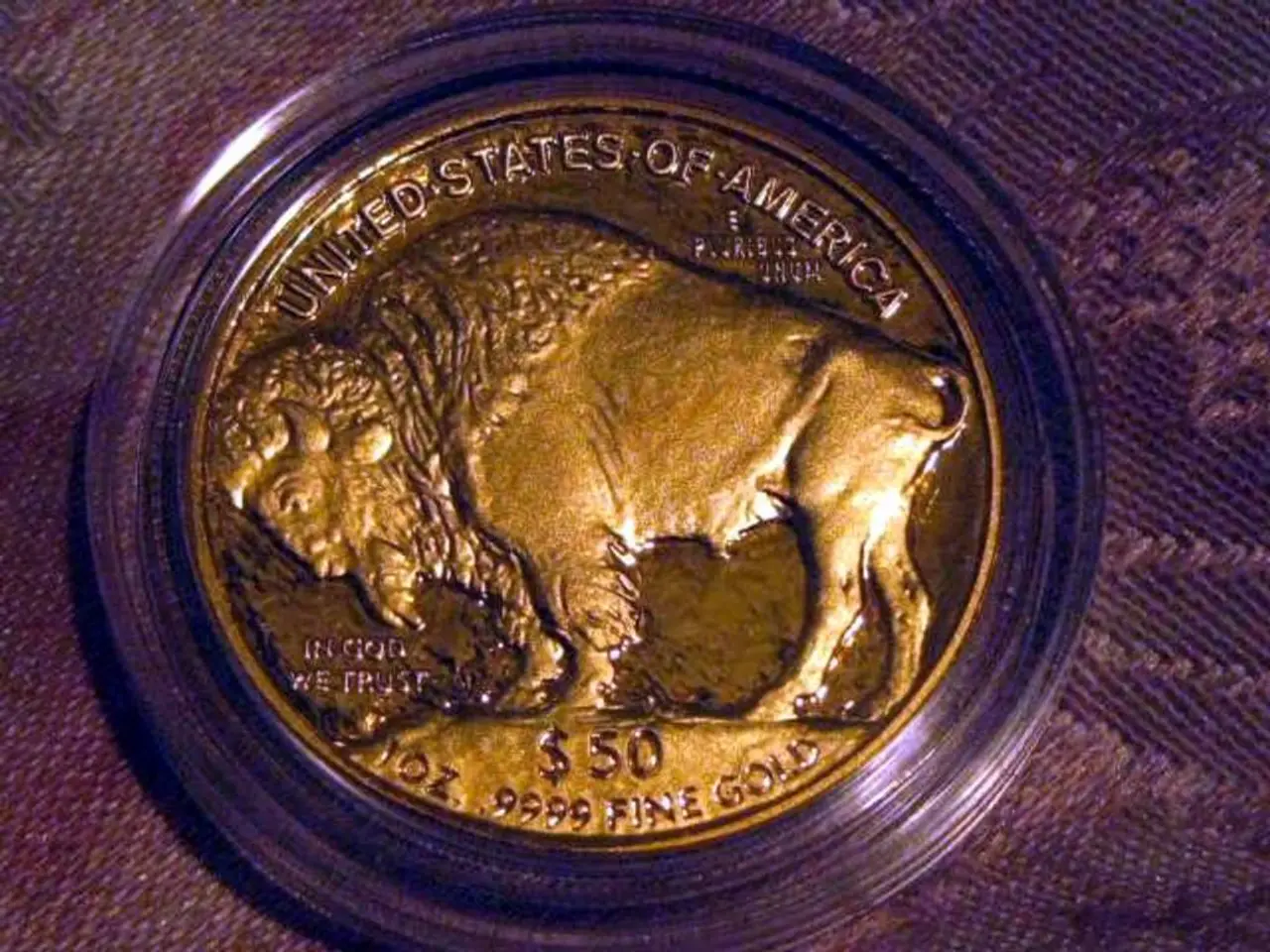"Author Kiyosaki Predicts Majors Economic Collapse: Learn How the 'Rich Dad Poor Dad' Writer Safeguards His Wealth"
In a series of recent posts, financial gurus Robert Kiyosaki and Marc Faber have issued warnings about a broad-based asset overvaluation known as the "everything bubble". This crisis, affecting various aspects of the economy, is not limited to a specific generation, with Millennials, Generation X, and Generation Z all experiencing financial difficulties due to this bubble.
Robert Kiyosaki, best known for his book "Rich Dad Poor Dad", has suggested buying more Bitcoin and predicts a potential Bitcoin blast-off in October. He also recommends investing in silver, suggesting to buy it before it reaches $50. Kiyosaki advocates for "hard money" such as Bitcoin, gold, and silver as a means of protecting wealth, warning that the "everything bubble" is causing financial distress among the younger generations, preventing them from affording basic expenses like houses and maintaining a similar standard of living as their parents.
Marc Faber, also known as Dr. Doom due to his pessimistic economic outlook, agrees with Kiyosaki's assessment. Faber, a renowned Swiss economist, states that only a few wealthy individuals benefit from the asset price bubble caused by years of money printing, while the majority of people are becoming poorer without realizing it. He agrees with Kiyosaki's approach to investing, favoring a diversified portfolio that includes precious metals, stocks, real estate, bonds, and cash.
The "everything bubble" refers to a simultaneous overvaluation across nearly all major asset classes, including stocks, bonds, real estate, cryptocurrencies, and other alternative assets. Prices are driven more by speculation and the expectation of selling to someone else at a higher price rather than intrinsic cash flows or earnings. The bubble’s inflated prices have detached from economic fundamentals, meaning their correction could be abrupt and painful, inflicting behavior-changing losses on retail, institutional, and professional investors alike.
Key reasons for concern include speculative frenzy, high leverage and fiscal deficits, psychological contagion, and the impact on purchasing power. When bubbles pop, not only do asset prices collapse, but the disruption often contributes to economic contraction and inflation, further eroding real wealth and spending ability.
Experts warn that the "everything bubble" amplifies systemic financial risks and could lead to a broad market correction or crash with long-lasting negative effects on individual wealth and economic confidence. The bursting of such a widespread bubble may trigger severe, economy-wide declines in asset values, leading to substantial losses for investors and eroding purchasing power.
For those interested in learning more about Faber's investment methods, the article recommends reading "Better than the MSCI World! The 3 best ETFs for the year-end rally." It is crucial for investors to stay informed and adapt their strategies accordingly to navigate the challenges posed by the "everything bubble".
Personal finance experts Robert Kiyosaki and Marc Faber, alarmed by the overvaluation of assets dubbed the "everything bubble," suggest investors consider adding precious metals such as Bitcoin and silver to their portfolios for wealth protection. Faber, warning of detached asset prices causing potential losses for retail, institutional, and professional investors alike, also advocates diversification, including stocks, real estate, bonds, and cash.




